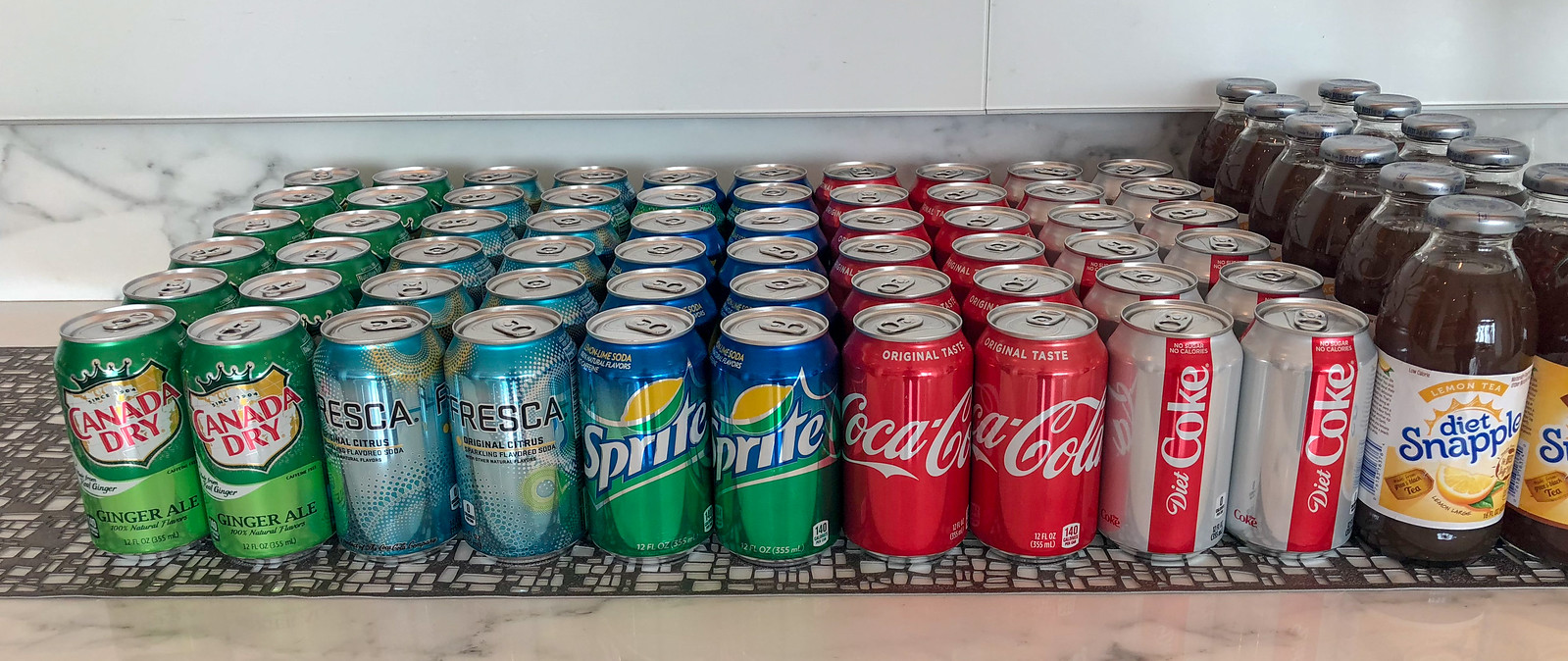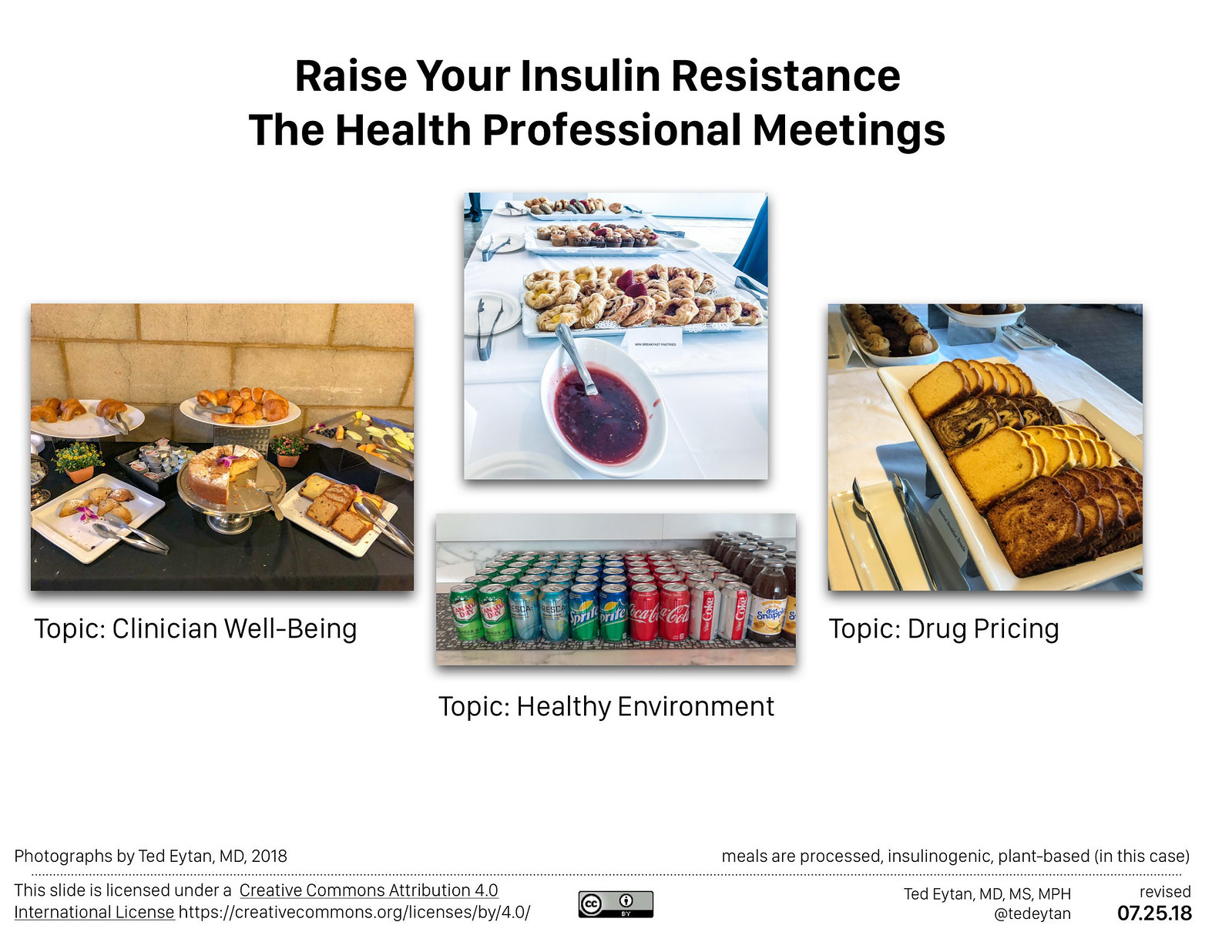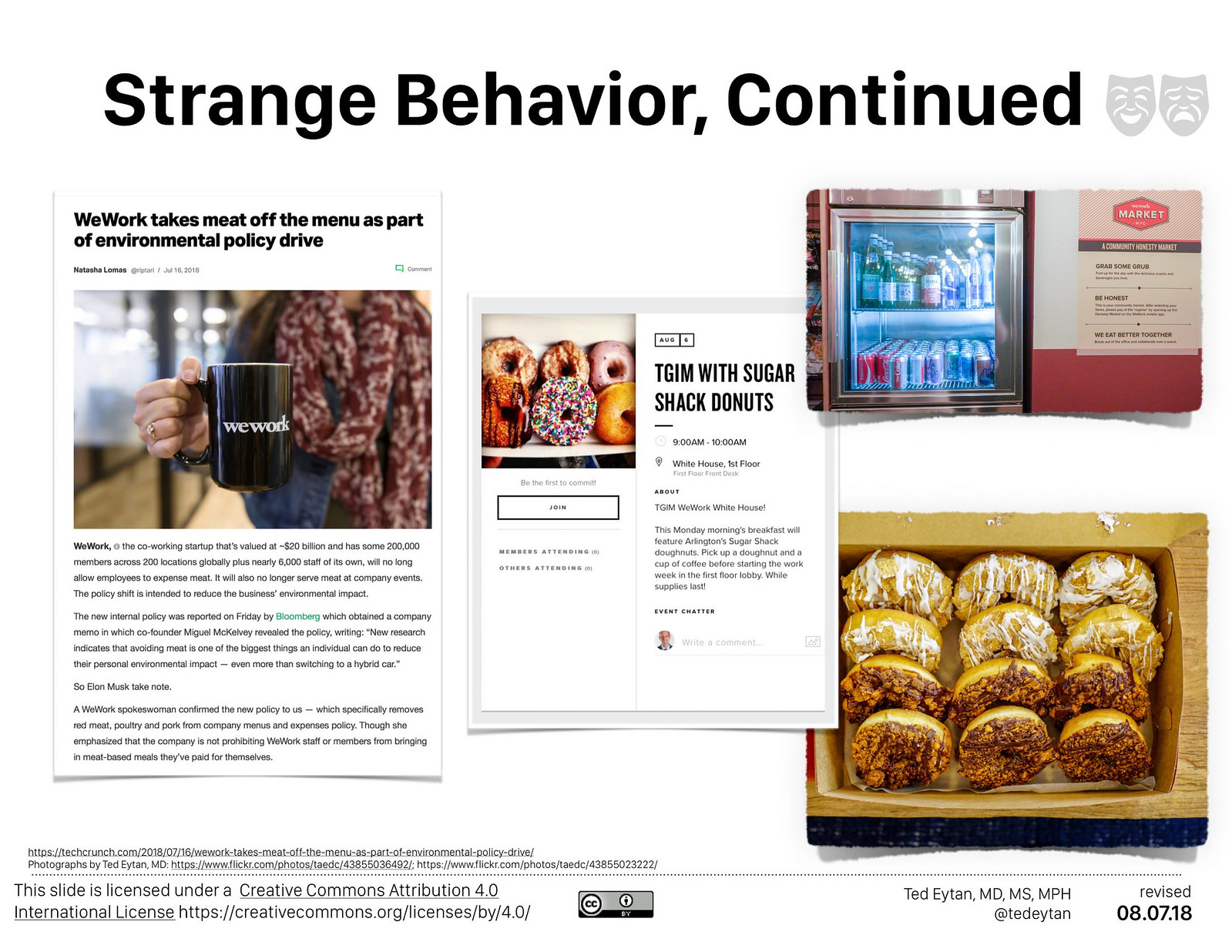
Thanks for selecting my photo, Cancer Research UK (@CR_UK), to illustrate this piece on the health effects of artificial sweeteners (hint, they are not positive, more info below).
I normally wouldn’t write a post about a post showcasing a photo of sugar sweetened beverages that I’ve taken, however in this case, the photo has special meaning:
- It was taken at a meeting whose subject was climate change and health. So while the topic was about a healthy planet, the nutritional choices made were less than healthy. It’s healthy planet AND healthy people, not one or the other.
-
Also in these circles, there’s often a “no meat” policy, despite the fact that there’s very little evidence that a real-food diet containing meat is unhealthier for people than one without meat. What is often substituted for in these meetings are high sugar/processed carbohydrate items. I call this a “meat: no, diabetes, yes” policy.

Here’s another great example:

- The science around artificial / non-nutritive sweeteners being less than healthy is mounting. I am doing some testing in my own continuous glucose monitor experiments and will share some literature. In the meantime, here’s a helpful video lecture on the topic.
There’s no convincing evidence that artificial sweeteners increase cancer risk. But can they help weight loss? We take a look at the latest research.